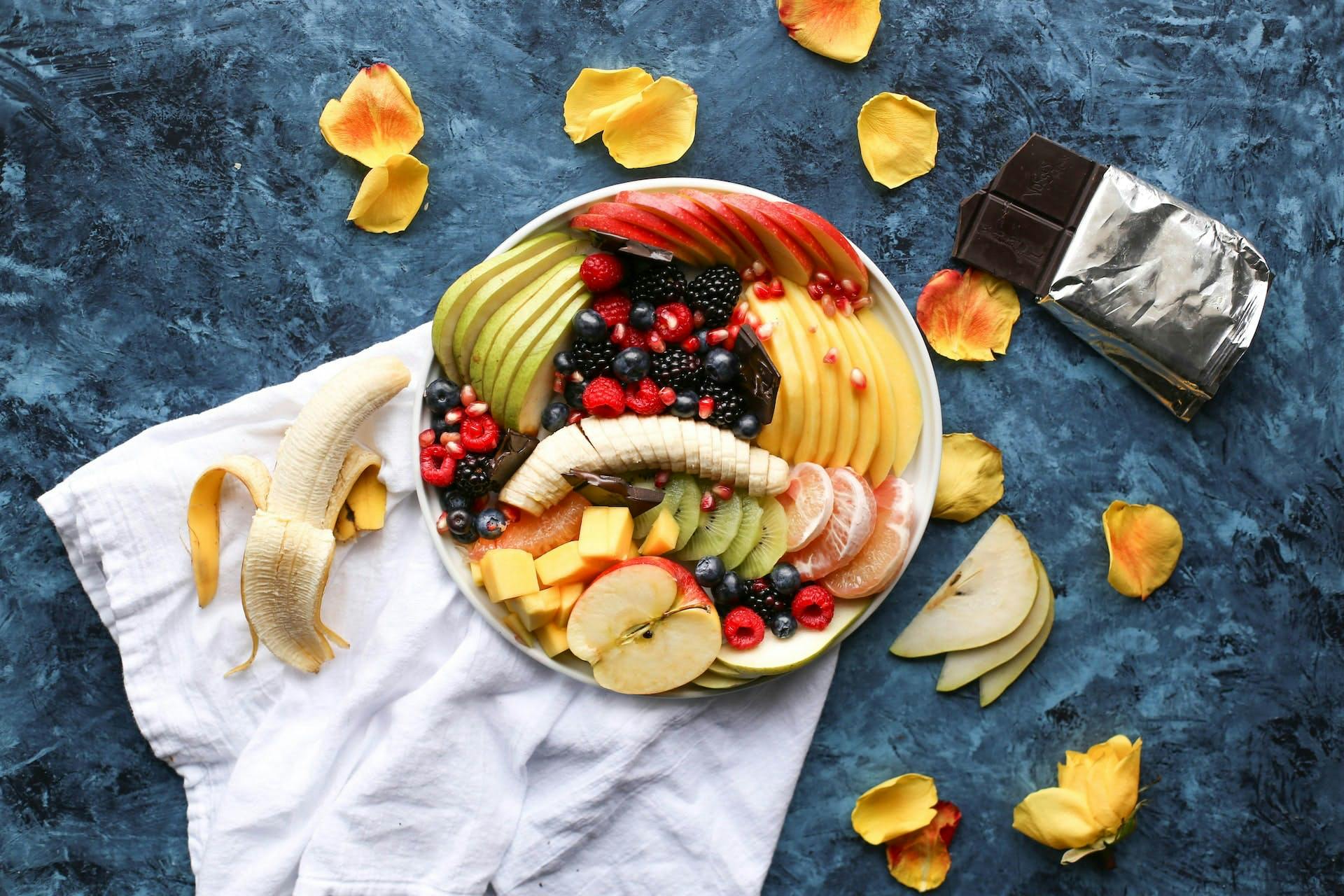In the last few decades, artificial sweeteners — or non-nutritive sweeteners (NNS) — have gained a significant amount of popularity as people have started to recognize the negative health outcomes of eating too much sugar. They’ve become popular as a sugar replacement that reduces the calorie content in foods and may even support weight loss, but research also suggests that they may negatively impact metabolic health (through a rise in glucose and insulin levels) as well as the microbiome [1].
So what are artificial sweeteners, and how do they impact metabolic health? Should they be used as a sugar alternative or best avoided altogether?
What are artificial sweeteners?
Artificial sweeteners are synthetic sugar substitutes that mimic the taste of sugar but contain little to no calories.
These sweeteners are much sweeter than traditional sugar, often hundreds to thousands of times, and require a much smaller amount to achieve the same sweet taste.
Who discovered artificial sweeteners?
The first artificial sweetener, saccharin, was discovered by accident in 1879 by chemists Constantin Fahlberg and Ira Remsen at Johns Hopkins University [2]. Researchers were working with a coal tar derivative and Fahlberg came across a sweet taste on his hand. Soon after, he identified the compound and named this saccharin. Since then a number of other artificial sweeteners have been introduced to the North American market, gaining a significant amount of popularity in the 2000s [3].
What are common sugar substitutes?
Some common types of artificial sweeteners include:
- Saccharin - Sweet 'N Low
- Aspartame - Nutrasweet, Equal
- Sucralose - Splenda
- Acesulfame K - Sweet One
Something to keep in mind — each sweetener is unique. Artificial sweeteners differ in chemical structure, how they are broken down and absorbed, and sweetness intensity. Therefore, they have different implications when it comes to metabolic health.
How do artificial sweeteners relate to blood glucose?
If you monitor your blood sugar with a CGM, you may notice that artificial sweeteners have a minimal impact on your blood sugar. This is because none of these sweeteners actually contain glucose, which is what typically triggers a rise in blood sugar.
However, artificial sweeteners may impact your blood sugar through other mechanistic pathways, such as through changes in the bacteria that make up your gut microbiome.
In 2014, Israeli scientists were the first to link artificial sweetener consumption to alterations in the gut microbiome. In one study completed in mice, Suez et al. demonstrated that consumption of three non-nutritive sweeteners (saccharin, sucralose, and aspartame) could change both the composition and function of bacterial populations in the gut [4]. Mice fed these sweeteners also developed a glucose intolerance after 11 weeks. When the microbiota was transferred from mice consuming artificial sweeteners to germ-free mice (mice born and raised in sterile conditions), researchers found the mice recipients to exhibit the same glucose intolerance.
This effect was ameliorated by antibiotic use, demonstrating that the microbiome is a direct mediator of changes seen in glucose due to artificial sweetener consumption.
How do different types of NNS affect the microbiome?
While artificial sweeteners each have unique qualities, many common NNS have been shown to disrupt the gut microbiome.
In one study, 120 healthy adults were given saccharin, sucralose, aspartame, and stevia for a 2-week period of time. Researchers found that each of these sweeteners led to a unique alteration of the microbiome, while only saccharin and sucralose increased blood glucose levels [5].
Another study in mice supports these findings, showing sucralose, aspartame, and saccharin to all disrupt the balance and composition of the microbiome [6]. Interestingly, allulose may not exhibit the same negative effects [7]. As far as we currently know, most NNS contribute to alterations in the gut microbiome that have negative implications for our metabolic health.
What’s the impact of artificial sweeteners on insulin?
Insulin is a hormone responsible for controlling and regulating our blood sugar. It’s released in response to glucose entering the bloodstream and acts like a key that “unlocks” cells so glucose can enter and be used for energy or stored as fat.
On top of that, some research suggests that artificial sweeteners may cause a rise in insulin that is not paralleled to the change in glucose levels, indicating there may be other systems involved [8].
Reasons artificial sweeteners may trigger a rise in insulin
Our body has a number of fine-tuned mechanisms to physically prepare itself for anticipated caloric intake when you taste something sweet. One way NNS may cause a rise in insulin is by disturbing these intricate processes.
One example of this is the cephalic phase insulin release (CPIR) [9]. CPIR is a physiological response where insulin is released from sensory stimulation alone, such as sight, smell, or taste of food.
Some studies suggest that NNS can disrupt the CPIR because their sweet taste tells the body to prepare for calories, yet they never come (NNS do not contain calories) [10]. This uncoupling of sweet taste from caloric intake may lead to an overproduction of insulin, which may cause an increased accumulation of fat [11].
Another proposed mechanism for a rise in insulin is through hormonally mediated pathways. NNS stimulates the same taste receptors in the mouth as table sugar and, therefore, triggers much of the same cascade of reactions. For example, NNS activation of your sweet taste receptors may lead to the release of the hormone GLP-1 [12]. GLP-1 then instructs pancreatic beta-cells to produce insulin to prepare for the anticipated glucose load, therefore linking NNS consumption to a rise in insulin. At the same time, other studies have shown that there may be no effect of NNS on GLP-1 concentrations [13, 14].
Can artificial sweeteners decrease insulin sensitivity?
Research also suggests that artificial sweeteners can lead to a rise in insulin due to decreasing insulin sensitivity.
A 2018 randomized control trial found that sucralose consumption over a 14-day period was correlated with a significant decrease in insulin sensitivity [15]. However, there’s contradictory research suggesting that there is no association between NNS consumption and insulin sensitivity, instead suggesting that artificial sweetener consumption may lead to a reduced risk of Type 2 diabetes and obesity [16].
All in all, there’s a strong need for more well-designed studies to investigate the influence and long-term effects of artificial sweeteners on blood glucose and insulin response.
Are natural sweeteners better than artificial sweeteners?
Natural sugars and sweeteners are plant-derived substances that are less processed than their table sugar counterparts. Some examples of these sweeteners include:
- Natural sugars: Maple syrup, honey, agave syrup
- Natural sweeteners: Allulose, monk fruit, stevia
In the realm of natural sweeteners, stevia has emerged as a potential option to avoid some metabolic consequences. One study found stevia may even lower glucose levels after a meal compared to sucrose [17]. Stevia may also support weight maintenance and reduce one’s appetite and caloric intake [18, 19].
However, other studies disagree [20]. At this point, stevia may be the best option to sweeten foods, but also may be best to use it sparingly.
Are artificial sweeteners safe to consume?
The International Agency for Research on Cancer (IARC) — a branch of the World Health Organization that focuses on cancer — recently announced that it will add aspartame (i.e., Nutrasweet and Equal) to its list of possible carcinogens [21].
The announcement rocked the food industry, since aspartame is one of the 3 most popular non-nutritive sweeteners used in sugar-free items [22]. It also left many curious about the research that may have prompted this decision from the IARC, considering aspartame has long been at the center of controversial research and public opinion in regards to its safety [23]. Here’s what we currently know:
- The IARC has listed aspartame as “possibly carcinogenic” — though more research is needed to assess its safety [24]. Possibly carcinogenic products are part of Group 2B in the WHO’s classification system, meaning that there’s limited evidence in humans and less than sufficient evidence in animal studies [25]. Agents that are part of Group 2B include welding fumes, engine exhaust/gasoline, lead, nickel, and pickled vegetables [26].
- The IARC ruling won’t consider how much aspartame a person can safely consume (this is left to other branches of the WHO). This means that we will only know that aspartame is “possibly carcinogenic,” without clear guidelines and how much is safe for humans to eat. Like many other ingredients, the dose makes the poison — consuming too much of anything, even those considered healthy, can be toxic to the body.
- A meta-analysis of previous studies done on rodents found that aspartame had no significant carcinogenic effects [37].
- Another systematic review found that studies that identified positive associations between aspartame and cancer risk were not rigorous and were affected by flaws that led to unreliable outcomes [38]. For example, in one case the test animals were already experiencing chronic inflammation unrelated to aspartame (such as mycoplasma pulmonis disease) that can also lead to the same tumors that the study attributed to aspartame. In other in vitro and in vivo studies, there were impurities or contaminants that may have led to erroneous results. A few of the key rodent studies that found a positive association also administered 100mg of aspartame per kilogram of bodyweight — which is 250% of the EU’s daily recommended intake for humans, and the equivalent of drinking approximately 38 Diet Cokes per day for a 75kg (165lb) person [39].
- Current research also suggests that aspartame is healthy in humans (see the following studies): 27, 28, 29, 30, 31, 32, 33, 34.
What’s the takeaway?
We don’t have conclusive evidence yet that aspartame is harmful to humans. However, we do know that obesity and poor metabolic health can drastically reduce your healthspan and quality of life. If aspartame-sweetened drinks help you reduce your sugar intake, lose weight, and improve your overall well-being, then don’t panic from the headlines you’re seeing and try to eliminate them cold turkey. Ultimately, the goal should be to reduce your intake of both aspartame and refined sugar, but the reality is that building healthy habits takes time, and demonizing ingredients without complete evidence can often do more harm than good.
So what do I do?
While NNS have become promoted as a tool to reduce the energy content of our foods without having any negative effects, research suggests that artificial sweeteners may have negative implications when it comes to our metabolic health.
At this point, we’ve seen that not all sweeteners are created equal. It’s important to remember that even if a sweetener is natural, such as maple syrup, it doesn’t mean that it is good for you. If you must use a sweetener, some research suggests stevia may be your best option.
Still, using an NNS like stevia doesn’t address a few of the underlying components of sugar consumption and cravings: sensitivity to sweetness. Resetting your taste buds by going on a sugar fast — where all sweet additives, including NNS, are eliminated for a period of time — can be a great way to cut back on your overall sweet food intake, including stevia-sweetened foods.
One study found that 86.6% of participants who cut out all sugar and NNS for even just 6 days stopped craving sugar, and that after 2 weeks, 95% of participants found that foods they’d previously enjoyed now tasted too sweet [21]. In another study, researchers discovered that eating a low-carbohydrate diet reduced sweet cravings among participants [22].
Ultimately, weaning yourself off of sugar and sticking with real food options such as a piece of whole fruit, which contains fiber and other beneficial nutrients, and natural sweeteners in moderation is the best long-term strategy for stable glucose levels and metabolic function.
Key Takeaways
- Artificial sweeteners may disrupt the gut microbiota, contribute to glucose intolerance, and decrease insulin sensitivity. Further well-controlled, long-term human studies are needed to investigate these effects and their underlying mechanisms.
- If your goal is weight loss, artificial sweeteners may help to reduce the caloric intake of your food, but they may have other metabolic consequences.
- Stevia may be the best option when it comes to artificial sweeteners. While it is alright to choose a natural sugar (such as honey or maple syrup) for its taste, try to add any added sugar sparingly.
- Reducing your sugar consumption will help to minimize sugar cravings over time.
- Opt for a piece of fruit when you are in need of something sweet. Fruit has fiber and other nutrients that provide value for the body.
- It’s important to find what is best for you. If you wish to use an artificial sweetener, use a CGM to see how this impacts your blood sugar in the short term, and pay attention to your cravings for sweet foods over time.
References:
- https://onlinelibrary.wiley.com/doi/10.1111/obr.13020
- https://www.acs.org/molecule-of-the-week/archive/s/saccharin.html
- https://www.frontiersin.org/articles/10.3389/fnut.2021.746247/full
- https://www.nature.com/articles/nature13793
- https://www.cell.com/cell/pdf/S0092-8674(22)00919-9.pdf
- https://www.sciencedirect.com/science/article/abs/pii/S0031938416301640?via%3Dihub
- https://www.ncbi.nlm.nih.gov/pmc/articles/PMC7071329/
- https://grantome.com/grant/NIH/ZIA-DK075093-06
- https://www.sciencedirect.com/science/article/pii/S0195666320300192
- https://www.ncbi.nlm.nih.gov/pmc/articles/PMC3319034/
- https://www.ncbi.nlm.nih.gov/pmc/articles/PMC2855968/
- https://www.ncbi.nlm.nih.gov/pmc/articles/PMC4763871/
- https://www.ncbi.nlm.nih.gov/pmc/articles/PMC3836145/
- https://pubmed.ncbi.nlm.nih.gov/19106249/
- https://academic.oup.com/ajcn/article/108/3/485/5095505?login=false
- https://pubmed.ncbi.nlm.nih.gov/29982723/
- https://www.ncbi.nlm.nih.gov/pmc/articles/PMC2900484/
- https://www.ncbi.nlm.nih.gov/pmc/articles/PMC7600789/
- https://pubmed.ncbi.nlm.nih.gov/32125421/
- https://pubmed.ncbi.nlm.nih.gov/27956737/
- https://www.ncbi.nlm.nih.gov/pmc/articles/PMC4500487/
- https://www.ncbi.nlm.nih.gov/pmc/articles/PMC3139783/


